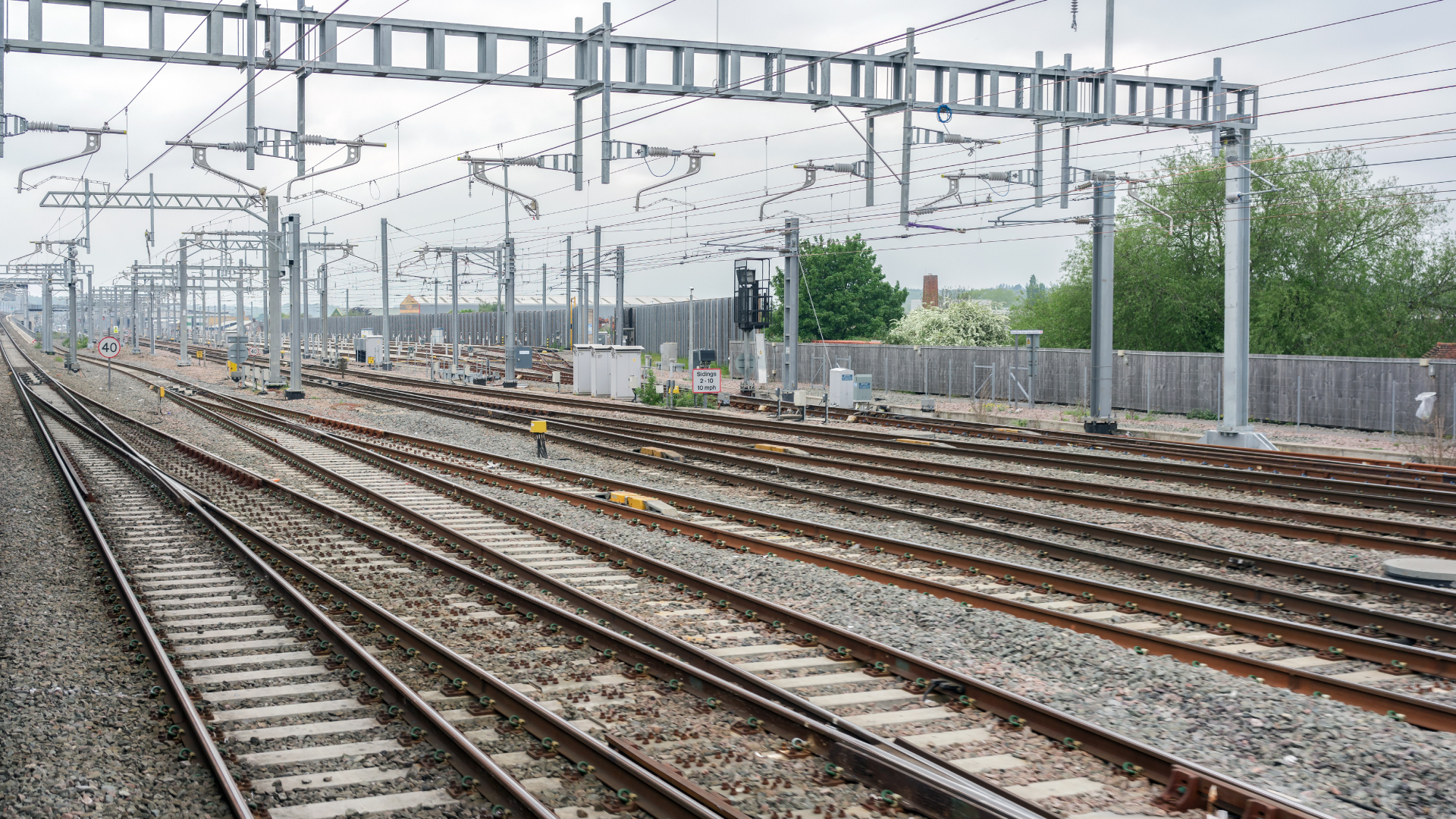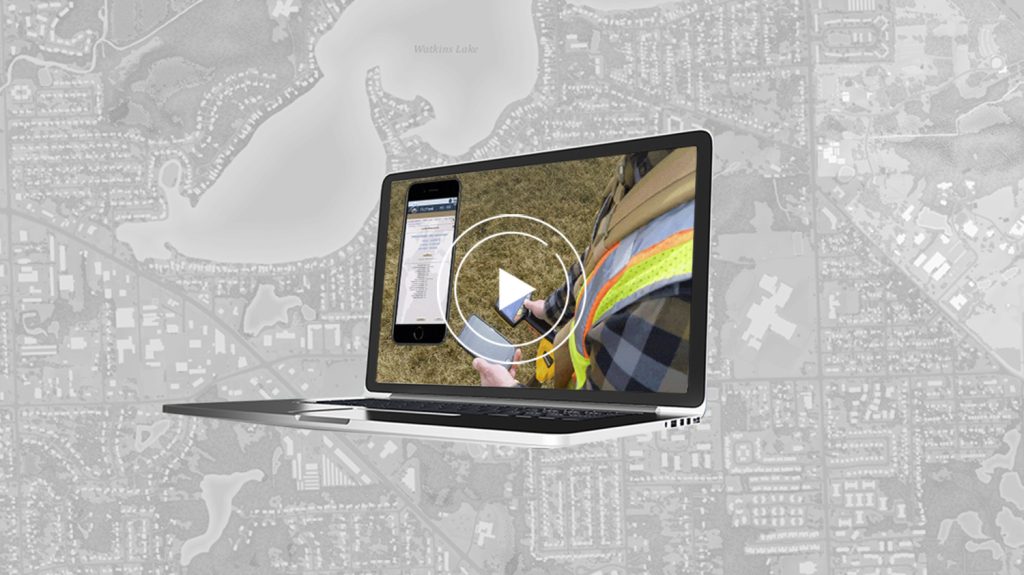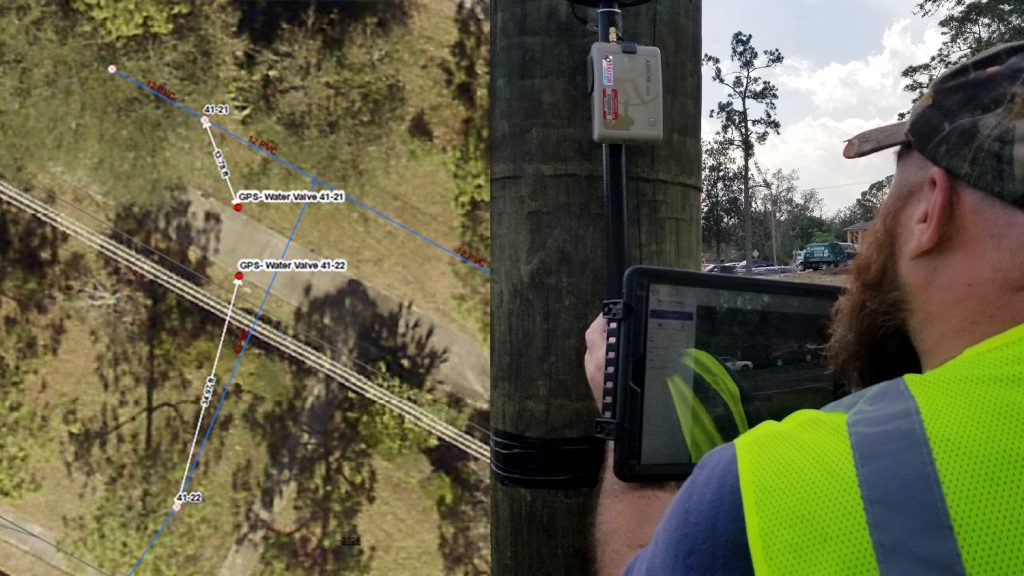In a ground-breaking project, Arcadis has used solutions from Esri’s ArcGIS platform to collaborate effectively with its client and deliver a new way of working. Accurate data captured efficiently in a live rail environment is shared with the client in real-time and integrated with BIM in one seamless, automated digital workflow.
Note: This story was originally published by Esri U.K. View the original article here.
The Challenge
A leading global design and consultancy firm, Arcadis is used to managing and delivering very large, complex projects. However, when it was approached by a major rail industry client and engaged to survey 400 miles of railway lines in the UK, it realised that it needed to create a new digital way of working. As part of the project, Arcadis had to capture extensive data about up to 50,000 electrical assets, ensure safe working within a live rail environment and deliver an accurate building information modelling (BIM) masterplan to support the operation and maintenance of the electrified infrastructure across the regional rail network.
“Right from the beginning, we established a vision combining our GIS, engineering and BIM expertise to transform the way we undertake these projects and deliver an efficient, high quality service for our client.”
Gideon Simons, Principal GIS and Geospatial Consultant, Arcadis
The Solution
Arcadis had been using a suite of desktop, web-based and mobile solutions from Esri’s ArcGIS platform for many years and instantly recognised the key role that GIS could play in the rail project. “Right from the beginning, we established a vision combining our GIS, engineering and BIM expertise to transform the way we undertake these projects and deliver an efficient, high quality service for our client,” says Gideon Simons, Principal GIS and Geospatial Consultant at Arcadis.
In the new digital workflow that Arcadis subsequently developed, engineers use ArcGIS Survey123 to capture accurate, geo-located data in the field about electrical assets, their condition and compliance with standards. Survey123 draws on high-end GPS data from Eos Arrows to ensure sub-metre accuracy for the locations of assets in the field.
In addition, Survey123 integrates with Microsoft Power Automate, allowing alerts and emails to be sent automatically from the field. If engineers observe a safety issue, such as an exposed wire, they can generate a real-time alert from within Survey123, which is sent directly to the Health & Safety Manager. The data collected with Survey123 is automatically backed up and automatically generates regular reports.
Arcadis uses a range of ArcGIS Dashboards to provide real-time visibility of the project. One provides an overview of the survey progress for the Project Manager, allowing them to effectively monitor the contractor’s time on site, track survey progress and drill down into records to see emerging health & safety issues. Another dashboard allows Arcadis to share real-time data with the client and the contractor, with highlighted metrics linked to key performance indicators (KPIs) for the project.
Meanwhile, engineers at Arcadis use a specially-developed ArcGIS web app to view and quality assure all the data collected in the field. This GIS data is automatically converted into BIM format, to client standards, and transferred into the BIM model, with no manual intervention at all, using interoperability software (Safe Software FME).
The last ArcGIS component in the digital workflow is ArcGIS Hub which enables Arcadis, the contractor and the client to securely share information via a project delivery website. ArcGIS Hub effectively provides a secure portal to all documentation, dashboards, plans and other resources relating to the project, creating a seamless, shared experience for everyone involved in the project, from three organisations.
“By using a data centric approach across GIS and BIM, we can provide our client with a more cost effective method of planning future works on the rail network to improve the performance of the railway and the passenger experience.”
Gideon Simons, Principal GIS and Geospatial Consultant, Arcadis
Benefits
Efficient delivery of a large survey project
Arcadis has been able to use multiple solutions from the ArcGIS platform to create a seamless, end-to-end digital workflow for managing the survey project for its client, improving efficiency. In the first six months alone, Arcadis successfully surveyed over 9,000 assets across 130 miles. The use of the mobile ArcGIS solution delivered a 10% time saving in asset data capture on site, while the seamless digital workflow improved project management efficiencies by up to 150%. The automated flow of data has also halved the effort from the design team to produce the final deliverables for the client.
Successful collaboration with client and contractor
Together, the use of ArcGIS HUB and the ArcGIS Dashboards have helped Arcadis to collaborate successfully with the client and contractor. Everyone has real-time access to the same information, and the client can monitor Arcadis’ performance against KPIs at a glance, on demand. “The dashboard is also very useful in meetings,” explains Simons. “It promotes good discussions, makes our meetings more interactive and enables increased engagement with our client.”
Rapid response to health & safety concerns
Critically, the ArcGIS-driven digital workflow allows potential health & safety concerns to be highlighted and resolved more quickly, to reduce the risk to all rail staff and contractors working along the railway lines – now and in the future. If a potential hazard is observed – whether it relates to an electrical fault, fly tipping or damaged fences – it is logged to update the system in real time and indicate where immediate actions can be taken if deemed necessary by the client and contractors.
Resilience through digital transformation
The seamless flow of data from ArcGIS to the BIM ensures the quality of the BIM model and saves a huge amount of time for designers and engineers, by eliminating many manual data handling processes. “We call this resilience,” Simons says. “By using a data centric approach across GIS and BIM, we can provide our client with a more cost effective method of planning future works on the rail network to improve the performance of the railway and the passenger experience. This approach also provides the potential to leverage 4D (schedule), 5D (budget) and Digital Twins to enhance insight and ultimately effect a positive change in how rail work is carried out in the future.”
Download a PDF of this article in ENGLISH.




